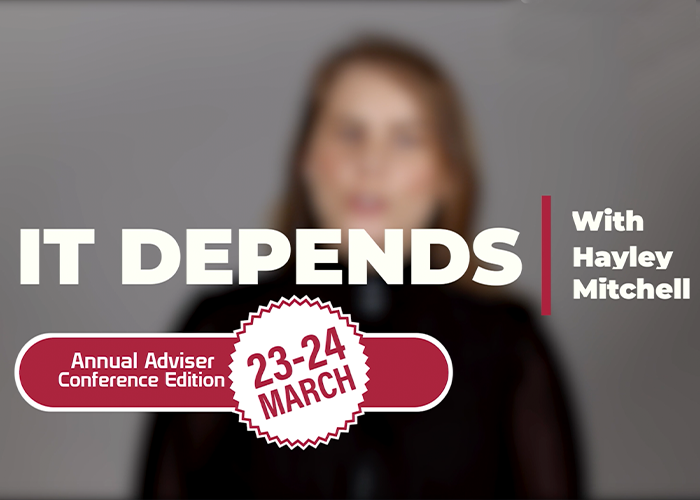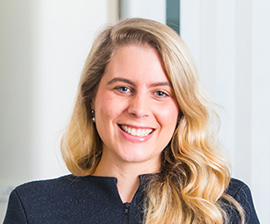In this edition of ‘It depends’, partner Hayley Mitchell talks about whether or not you should accept the role of an executor.
Hayley, along with special counsel Sarah Camm, will be presenting on this topic at our Annual Adviser Conference on 23 and 24 March 2023. Register now to attend in person or online.
Video transcript
Hi and welcome to It depends. Today I’m talking about whether or not you should accept the role of an executor.
What is the role and responsibility of an executor?
Generally, the executor’s role and responsibility is to uphold the terms of the Will, administer the estate according to the terms of the Will, act in the best interests of the beneficiaries and enlarge or realise the maximum value of the estate assets and protect the estate assets from waste or reducing in value at all. The executor’s role is as a fiduciary, so this means that they must act honestly, reasonably, and with good faith at all times. If the executor does not properly understand the nature and extent of their role because they have a high responsibility to the beneficiaries, this can lead to the executor potentially breaching their duty and facing personal liability.
Where can executors go wrong?
Executors may face criticism from the beneficiaries of the estate or potentially the courts if they don’t undertake their role properly. And at worst, the executors may face personal liability. Commonly, we see the following sorts of things get executors into trouble. They don’t seek appropriate legal accounting or financial advice about their role or certain aspects of the administration of the estate and dealing with the assets. If there is more than one executor, the combination of executors don’t quite work right, either they can’t agree on particular issues or they just don’t get along altogether. Or a dispute might arise over the validity of the Will or between the beneficiaries, which can make the executor’s role much more difficult and more time intensive. Another common reason we see executors getting into trouble is the assets of the estate have some complexity themselves. The executors might need to carry on a business for the estate or be involved within the deceased’s business entities like related trusts or companies. Crypto type assets can be complicated and difficult to navigate if the executor doesn’t have knowledge about these types of assets. Or the deceased held special collections like works of art and those sorts of things that require a specialist knowledge to be able to deal with.
Does an executor get paid?
This will depend and it will depend on the terms of the Will. If the executor is a professional, usually you will see a clause in the Will that allows them to charge their usual professional fees. These clauses need to be drafted carefully and the adviser should really seek some advice before they accept the role as executor to ensure that the charging clause is going to allow them to cover their time and trouble to act as the executor. Other methods of payment may include a gift to the executor under the Will, and that gift is conditional on them undertaking the role as the executor. The other option for an executor is to claim what is called Executors Commission. This is an amount that is usually determined by percentage of the value of the estate. The executor is going to need the consent to be paid the commission from the residuary beneficiaries. And if the residuary beneficiaries don’t consent, then it’s necessary for the executor to make an application to the Court for commission.
Should I accept the role as executor?
It depends, and it really depends on a variety of factors. The things that you should be considering before you accept the role is whether you should get some independent advice first. What is going to be involved in your role as an executor? So, looking at the nature of the assets, are they complicated assets? Thinking about who are the beneficiaries, is there likely to be any dispute between them at all? If you are an adviser looking at and making sure that you’ve got an appropriate clause to cover your professional fees, if you intend to charge for your time. Sarah Camm and I will be covering the topic of executors and attorneys and their rights and responsibilities at our Annual Advisor Conference on 23 and 24 March. So, if you want to hear more about this topic, come along and see us then. Otherwise you can contact a member of our team if you need some advice about the executor role.





